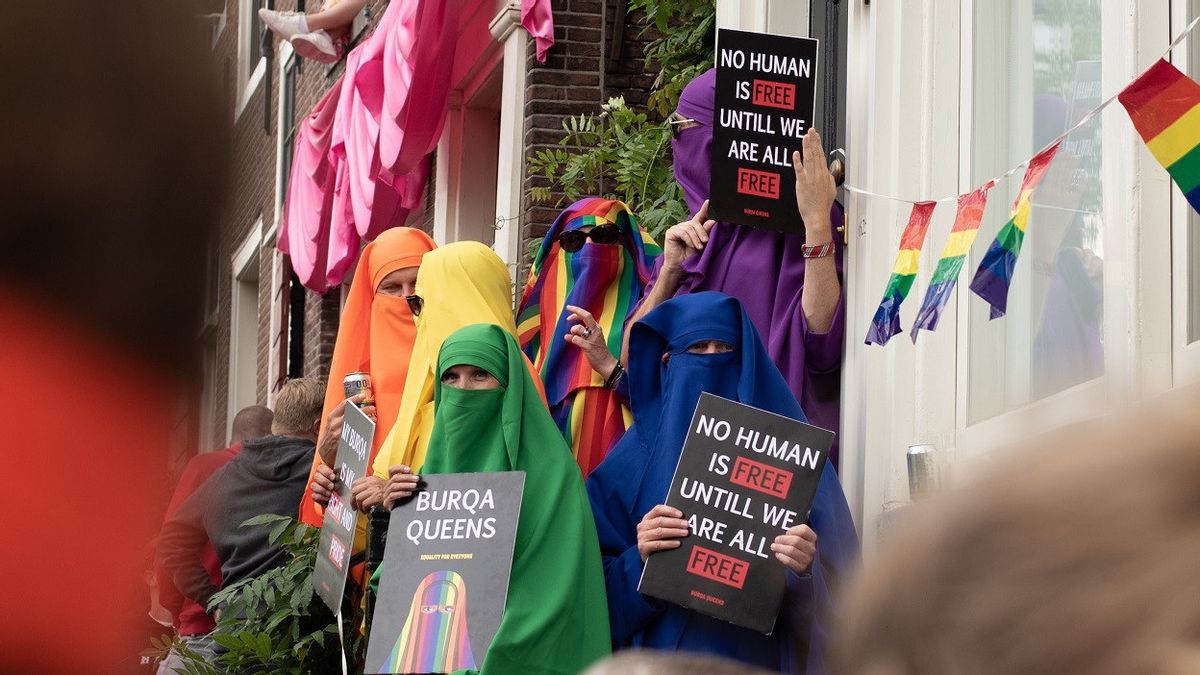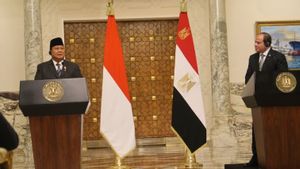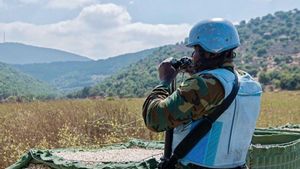JAKARTA - Swiss authorities held a referendum on the ban on the use of face coverings in public, including the burka and niqab worn by Muslim women, on Sunday, February 7 local time.
The result, as reported by the BBC, as much as 51.2 percent of the Swiss population approved this ban. The proposal for a ban was put forward by the Swiss People's Party, which often campaigns under the slogan 'end extremism'.
"Today's decision opens old wounds, further expands the principle of legal inequality, and sends a clear signal to isolate the Muslim minority," the Muslim Central Council said in a statement, adding that it would challenge the decision in court.
Previously, the Swiss Government had challenged the ban, saying that the state has no right to dictate what women wear.
According to the University of Lucerne study, almost no one in Switzerland wears a burka and only about 30 women wear the niqab. About 5 percent of Switzerland's 8.6 million population are Muslim, mostly from Turkey, Bosnia, and Kosovo.
The Swiss people are given a direct say in their own affairs under the country's system of direct democracy. They are regularly invited to vote on various issues in national or regional referendums.
This is not the first time Islam has been included in the Swiss referendum. In 2009, residents opposed the government's advice and voted to ban the construction of mosque minarets, a proposal also submitted by the SVP which says the minarets are a sign of Islamization.
The proposal in Sunday's referendum makes no mention of Islam directly, nor is it aimed at stopping street protesters wearing face coverings. However, the vote was widely referred to as a 'ban on the veil'.
Sanija Ameti, a member of the Swiss Muslim community, said the campaign and depictions of Muslim women on the posters for the rejection of face coverings were disappointing.
"So many Muslims in Switzerland will feel insulted and not part of this society, pushed into a corner where they don't belong. We don't look like these women in the photo, we don't," she said.
However, other Muslim communities support the ban. Imam Mustafa Memeti, from the city of Bern, said the motivation behind the campaign was "possibly Islamophobic". However, he still supports the ban because it could help emancipate Muslim women in Switzerland.
In the run-up to the vote, Walter Wobmann, chair of the referendum committee and member of the SVP parliament described the Muslim face cover as a 'symbol of extreme political Islam' that has become increasingly prominent in Europe. It has no place in Switzerland.
"In Switzerland, our tradition is to show your face. That's a sign of our basic freedom," he said.
SEE ALSO:
Meanwhile, Amnesty International opposed the proposed ban, calling it a "dangerous policy that violates women's rights, including freedom of expression and religion".
The English, Chinese, Japanese, Arabic, and French versions are automatically generated by the AI. So there may still be inaccuracies in translating, please always see Indonesian as our main language. (system supported by DigitalSiber.id)


















